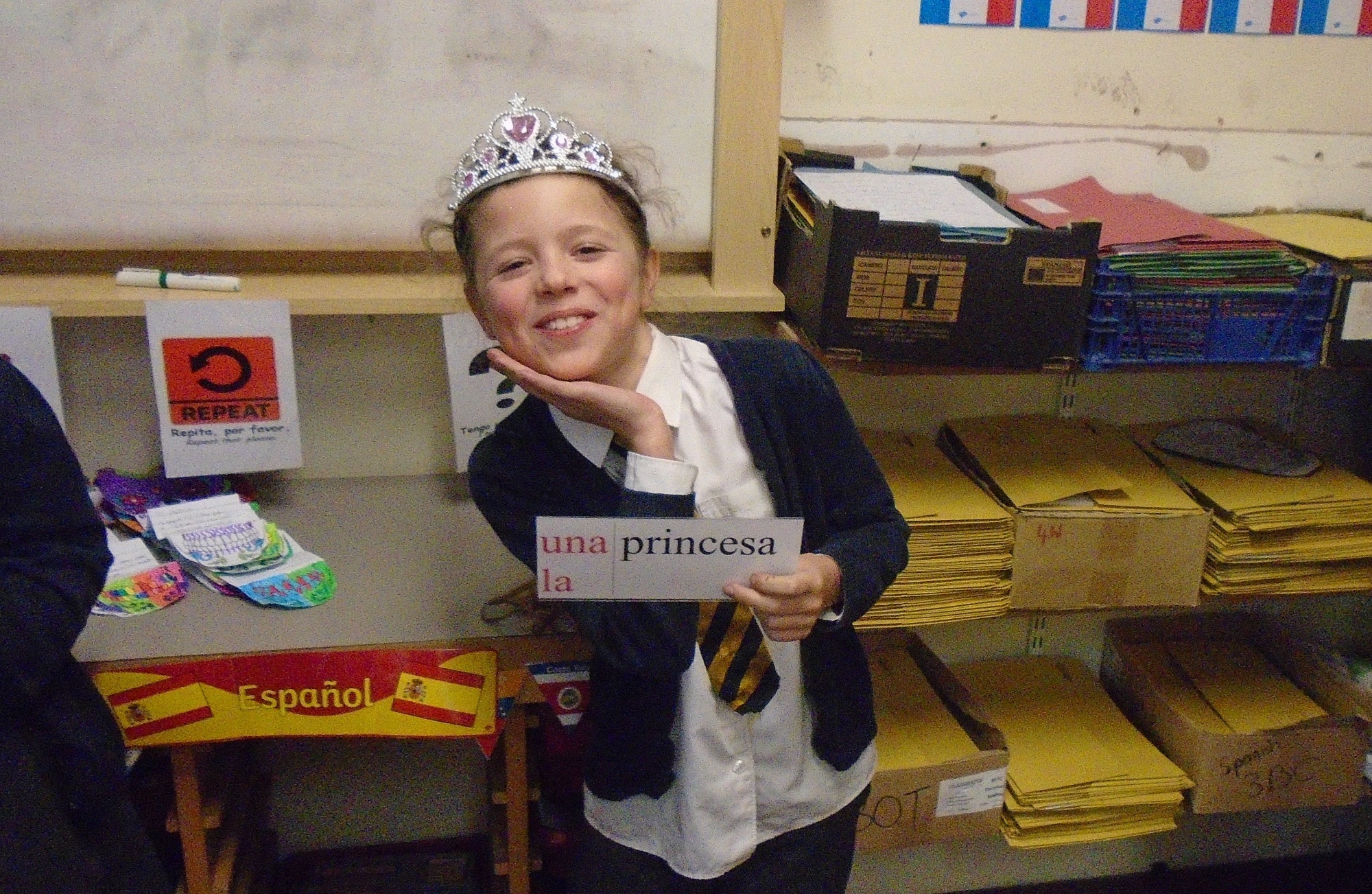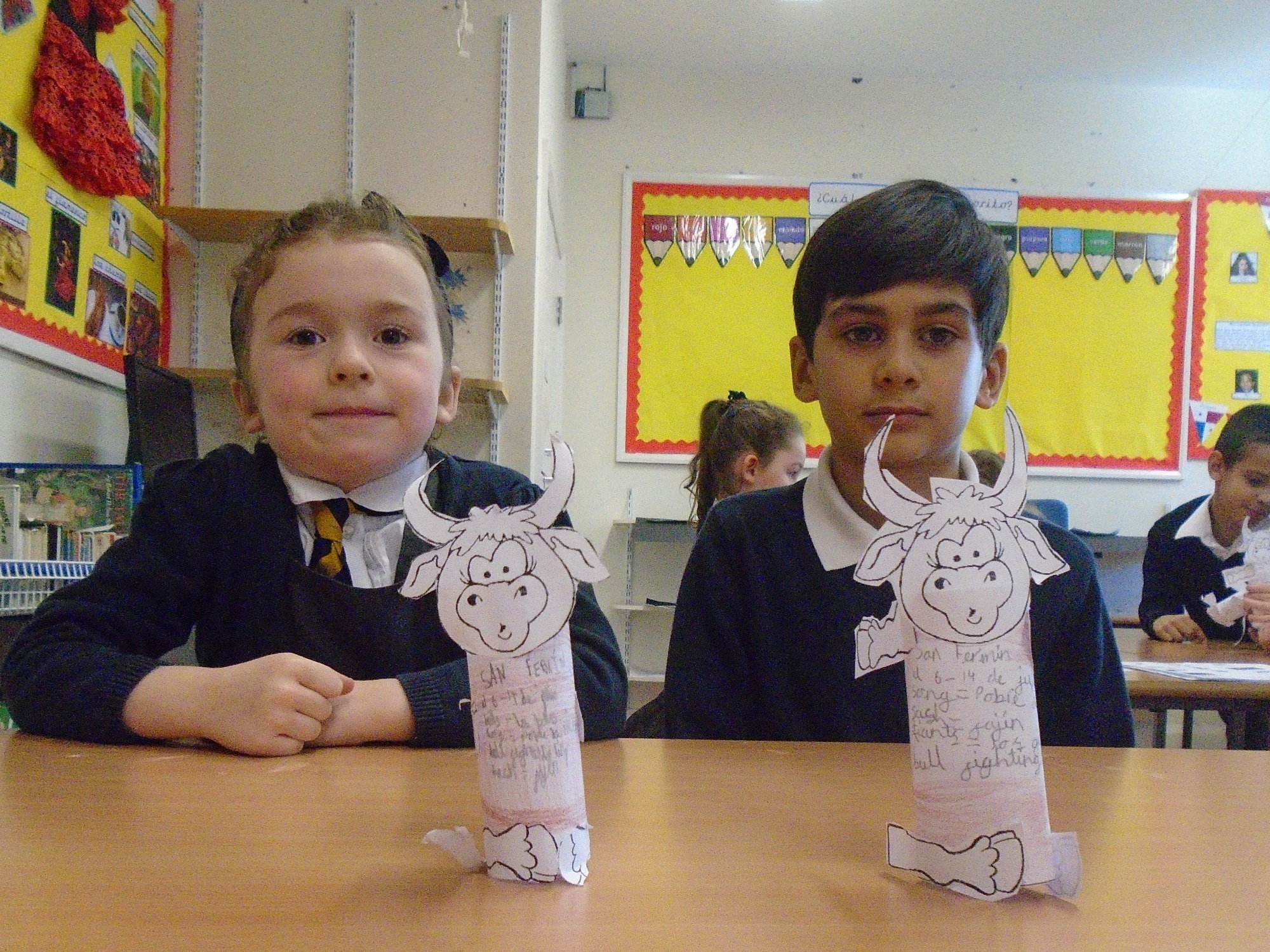MFL
Modern Foreign Languages
At St. George’s Primary School we believe that the learning of a foreign language provides a valuable educational, social and cultural experience for our pupils. It helps them to develop communication skills including key skills of speaking and listening and extends their knowledge of how language works. Learning another language gives children a new perspective on the world, encouraging them to understand their own cultures and those of others.



Through weekly 30 minute language lessons, the children at St George’s are provided with age-appropriate Primary Languages learning opportunities where they are able to express their ideas and thoughts in a foreign language and to understand and respond to speakers both in speech and in writing.
The language lessons foster a problem-solving approach, giving children opportunities to work out language use for themselves in a supportive context where risk-taking and creativity are encouraged, and there is an emphasis on having fun with the new language. ICT is used where appropriate to enhance teaching and learning.
Our Primary Languages curriculum aims to ensure that pupils throughout Year 1 to Year 6:
- understand and respond to spoken and written language
- speak with increasing confidence, fluency, and continually improving the accuracy of their pronunciation and intonation
- write at varying length, for different purposes (KS2)
- discover and develop an appreciation of a range of writing in Spanish (KS2)
The Primary Languages curriculum at St. Georges focuses on practical communication and lays the foundations for further foreign language study at key stage 3.
Pupils learn how to communicate ideas, facts and feelings in speech and writing; within familiar contexts and cross curricular topics by:
- Exploring the patterns and sounds of language through songs and rhymes and link the spelling, sound and meaning of words
- Engaging in conversations; asking and answering questions; express opinions and respond to those of others
- Speaking in sentences, using familiar vocabulary, phrases and basic language structures
- Developing accurate pronunciation and intonation
- Presenting ideas and information orally
- Reading to show and understanding of words, phrases
- Appreciating stories, songs, poems and rhymes in the foreign language
- Writing phrases from memory or with the aid of a word bank/ writing template.
- Describing people, places, things and actions orally
